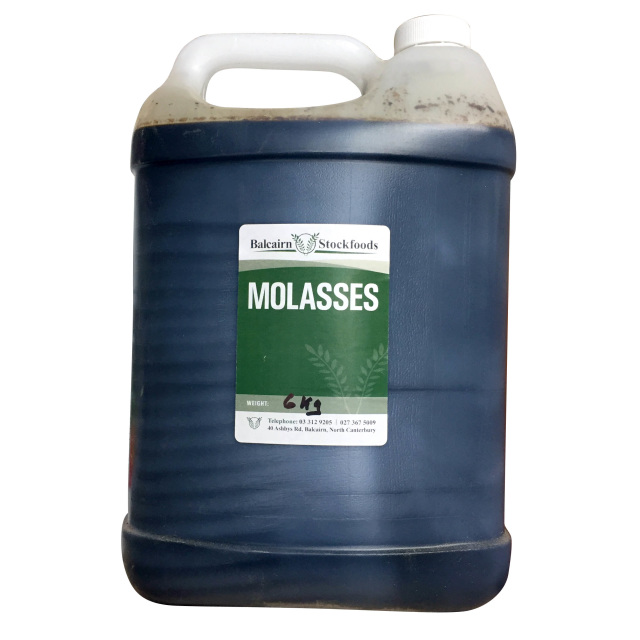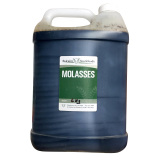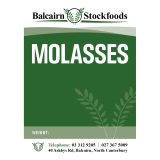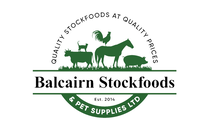- Cattle Supplements
- >
- Balcairn Stockfoods - Mollasses
Balcairn Stockfoods - Mollasses
SKU:
NZ$18.50
18.5
52.5
NZ$18.50 - NZ$52.50
Unavailable
per item
All products AVAILABLE IN STORE.
The molasses is derived from cane sugar and is characterised by its excellent palatability and flexibility of use. Molasses products are the key ingredients for cost-effectively managing the performance of other feeds including pasture.
Benefits of Molasses:
Directions for Use:
Molasses should be made available to livestock at the following rates:
Cattle
Dry dairy cows: 500g-1kg per day
Springing dairy cows: 700g-2kg per day
Lactating dairy cows: 500g-2kg per day
Adult beef cattle: 500g per day
Calves and heifers: 100g-500g per day
Sheep, Goats and Deer
Lactating or heavily pregnant: 100-200g per day
Other stock: 50-100g per dayImportant
Notes
Benefits of Molasses:
- Increases milk solid production
- Improves milk let-down
- Improves palatability of additives
- Promotes animal health
- Dilutes protein in the spring
- Improves fibre digestion
- Assists in reducing heat related stress
- Aids continued growth and development of young stock
- Increases diet density when intake is reduced before calving
- Provides sugar during early pasture growth
- Assists pregnancy rates - condenses calving patterns
Directions for Use:
Molasses should be made available to livestock at the following rates:
Cattle
Dry dairy cows: 500g-1kg per day
Springing dairy cows: 700g-2kg per day
Lactating dairy cows: 500g-2kg per day
Adult beef cattle: 500g per day
Calves and heifers: 100g-500g per day
Sheep, Goats and Deer
Lactating or heavily pregnant: 100-200g per day
Other stock: 50-100g per dayImportant
Notes
- DO NOT feed molasses at rates greater than 20% of the total diet on a dry matter basis.
- Feeding very high rates of molasses to ruminants grazing very lush pasture may increase the requirement for an additional dietary fibre source such as straw or hay.
- It is advisable NOT TO ADD molasses to the milk of unweaned calves. Young unweaned calves may not be able to digest molasses when drunk with a liquid feed, as milk does not go into rumen.
- Calves CAN digest molasses when it is added to meal and ‘solid’ feeds, as the rumen is functioning when these feeds are consumed.
- DO NOT allow hungry cows free access to highly fermentable products as there is a high risk of cows developing ruminal acidosis.




